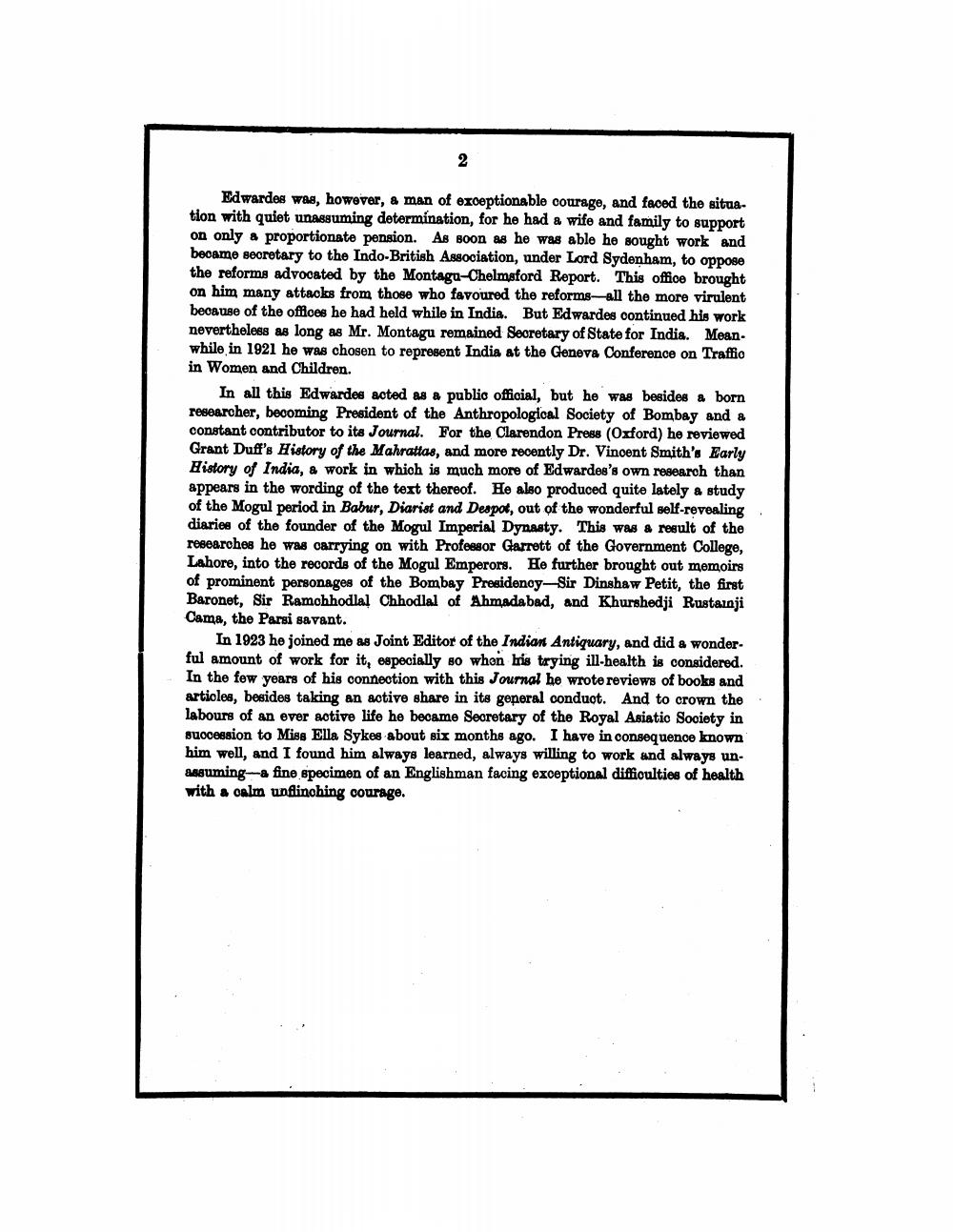________________
Edwardes wag, however, a man of exceptionable courage, and faced the situation with quiet unassuming determination, for he had a wife and family to support on only & proportionate pension. As soon as he was able he sought work and became secretary to the Indo-British Association, under Lord Sydenham, to oppose the reforma advocated by the Montagu-Chelmsford Report. This office brought on him many attacks from those who favoured the reforms-all the more virulent because of the offices he had held while in India. But Edwardes continued his work nevertheless as long as Mr. Montagu remained Seoretary of State for India. Mean. while in 1921 he was chosen to represent India at the Geneva Conference on Traffic in Women and Children.
In all this Edwardes acted as a public official, but he was besides a born researcher, becoming President of the Anthropological Society of Bombay and a constant contributor to its Journal. For the Clarendon Press (Oxford) he reviewed Grant Duft's History of the Mahrattas, and more recently Dr. Vincent Smith's Early History of India, a work in which is much more of Edwardes's own research than appears in the wording of the text thereof. He also produced quite lately a study of the Mogul period in Babur, Diarist and Despot, out of the wonderful self-revealing diaries of the founder of the Mogul Imperial Dynasty. This was a result of the researches he was carrying on with Professor Garrett of the Government College, Lahore, into the records of the Mogul Emperors. He further brought out memoirs of prominent personages of the Bombay Presidenoy-Sir Dinshaw Petit, the first Baronet, Sir Ramohhodlal Chhodlal of Ahmadabad, and Khurshedji Rustainji Cama, the Parsi savant.
In 1923 he joined me as Joint Editor of the Indian Antiquary, and did a wonder. ful amount of work for it, especially so when his trying ill-health is considered. In the few years of his connection with this Journal he wrote reviews of books and articles, besides taking an active share in its general conduot. And to crown the labours of an ever active life he became Secretary of the Royal Asiatic Society in SUOession to Miss Ella Sykes about six months ago. I have in consequence known him well, and I found him always learned, always willing to work and always unassuming--a fine specimen of an Englishman facing exceptional difficulties of health with a calm unflinching courage.




